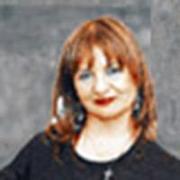Gönül's remarks evoke reminiscences in the Rums
Paylaş
The remarks by Defense Minister Vecdi Gönul last week that population exchange at the beginning of the Turkish Republic was necessary for the building of a Turkish nation state, have already been harshly criticized in Turkey. The minister himself has claimed his remarks were misunderstood. Yet, in his speech at the Turkish Embassy in Brussels, his position was clear, "If there were Greeks in the Aegean and Armenians in most places in Turkey today, would it be the same nation-state? I do not know what words I can use to explain the importance of the population exchange, but if you look at the former state of affairs, its importance will become very clear."
For the past four years, with my colleague Haluk Ucel of Bilgi University, we have been trying to put together a documentary to show the present state of the community of the Rums, the Greek Orthodox and Greek-speaking Turkish citizens of Istanbul. Their stories may not be directly related to the target group of the defense minister, as the Rums of Istanbul were subject to deportations due to the Turkish state in of the 1950s and 1960s. But precisely because they are the still living witnesses of these relatively recent events, they can tell their stories. A very small portion of the once thriving community of over 100,000 members, live today in Istanbul, struggling to overcome their psychological trauma from past wounds and win over fear and suspicion about the honesty of any Turkish government toward them.
We talked to many of them. We talked to well known Turks who cannot remember their childhood without their friends "Lefteris, Costas, Eleni" who suddenly disappeared from their street plays in Pera. And we talked to the ones who, after being expelled from Istanbul or having left in fear after 1955, now live with their sepia photos and albums of the city, still not able to fully integrate into Greek society. We also talked to their children, their first memorable experiences in life connected with an unexpected, "man in a dark suit," coming one evening to their apartment, after which their mother began packing their belongings. We found them in Athens where they live, cry and remember. I
n spite of the thaw in the Greek-Turkish relations after the 1990s, numerous initiatives taken on a citizen’s level between the two countries, in spite of the many joint projects to increase understanding, analyze history, promote cooperation, think positively toward the future; the Rums we talked to have a longer memory than us. They prefer grief to joy, fear to friendship, suspicion to optimism. Instead of any other comments, I will give you some small extracts of what children of that period, now in their 50s, told us:
"I was born in 1957. I left Turkey when I was seven. I remember the day of the deportations, some police officers came to the house to announce the decision to my father. We were getting ready to go to the cinema with family friends, as soon as people we had not not expected rang our doorbell, I immediately understood, instinctively, that something bad was happening. Two gentlemen came in who were very polite to my father and said certain things to him which I found out much later. I immediately understood this was not something pleasant and I went into my room and began to cry..."
"There was a climate of increased tension, not so much religious, but let us say ethnic conflict. People who were your neighbors, as an example, let us say, the butcher of the neighborhood, sharpening his knife in a strange manner and saying strange things to my mother. All these events took place suddenly. I was born in 1951. I have a very dim recollection of the September ’55 events because I was very little, in a month’s time I would have been four years old. Nevertheless, a curious thing! It appeared the moment was very intense, I remember very faintly that I lived through something very intense; stones breaking window panes in the house. It is curious, but I do not remember anything else before the age of six."
These Rums, whose childhoods were marked by such events, are confused today.
"While we were hoping that the European prospects of Turkey will help to heal wounds, we see a certain irresolution around certain issues. This creates confusion in us. Of course we do not know whether this situation will protract, or if in the future, changes will take place in order to make us more optimistic."
But what makes them somewhat optimistic is, "we hear certain voices, perhaps not so many as we would like to, but in any case, at least some people exist in Turkey who see minorities through different eyes."
Still, even among the most open minded, sophisticated, cultured Rums, who have proved their genuine wish to heal old wounds and contribute to a new era of understanding, we find deeply rooted obstacles blocking a smooth approach toward Turkey.
"I left in ’64 and went back to Istanbul in 1994, 30 years later! I cannot define precisely why it took me so long. It was fear, a fear which could have been partly real and partly fantasy. Of course, how can you feel positively about a place that you were kicked out of? That is to say, do you go back to a place you were kicked out of?"
(NB. I would like to thank my old and new Greek American friends Apostolos, Gregory, Andreas, Linos for pointing out that the computer produced sign appearing last week was a hoax. Of course it was. But I would like to ask them to look more carefully on the last sentence of the story and not so much on the first. )
Paylaş








